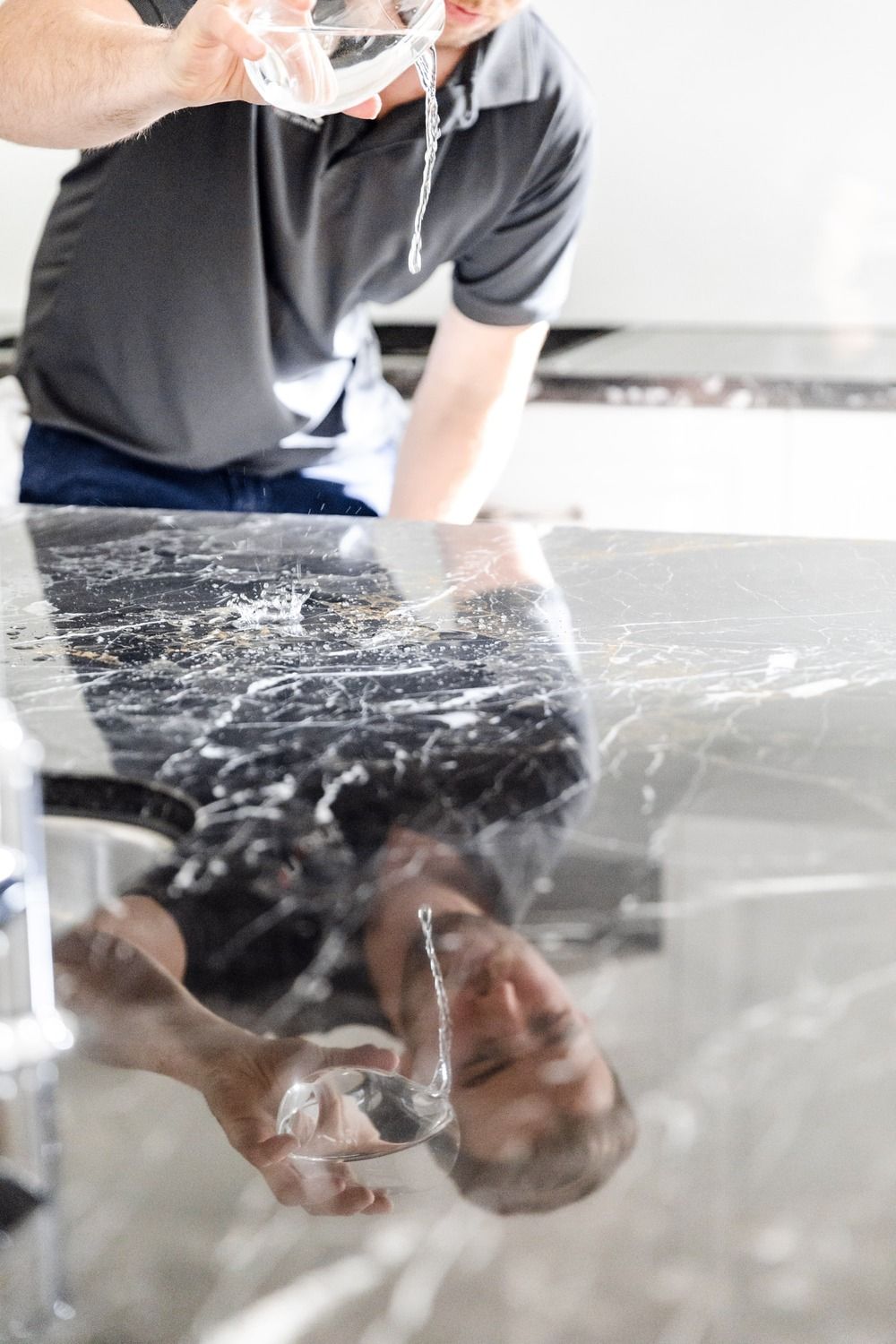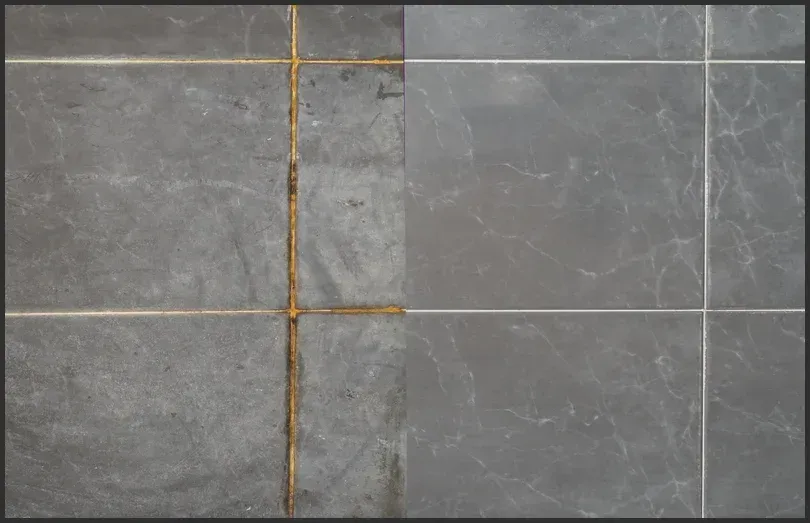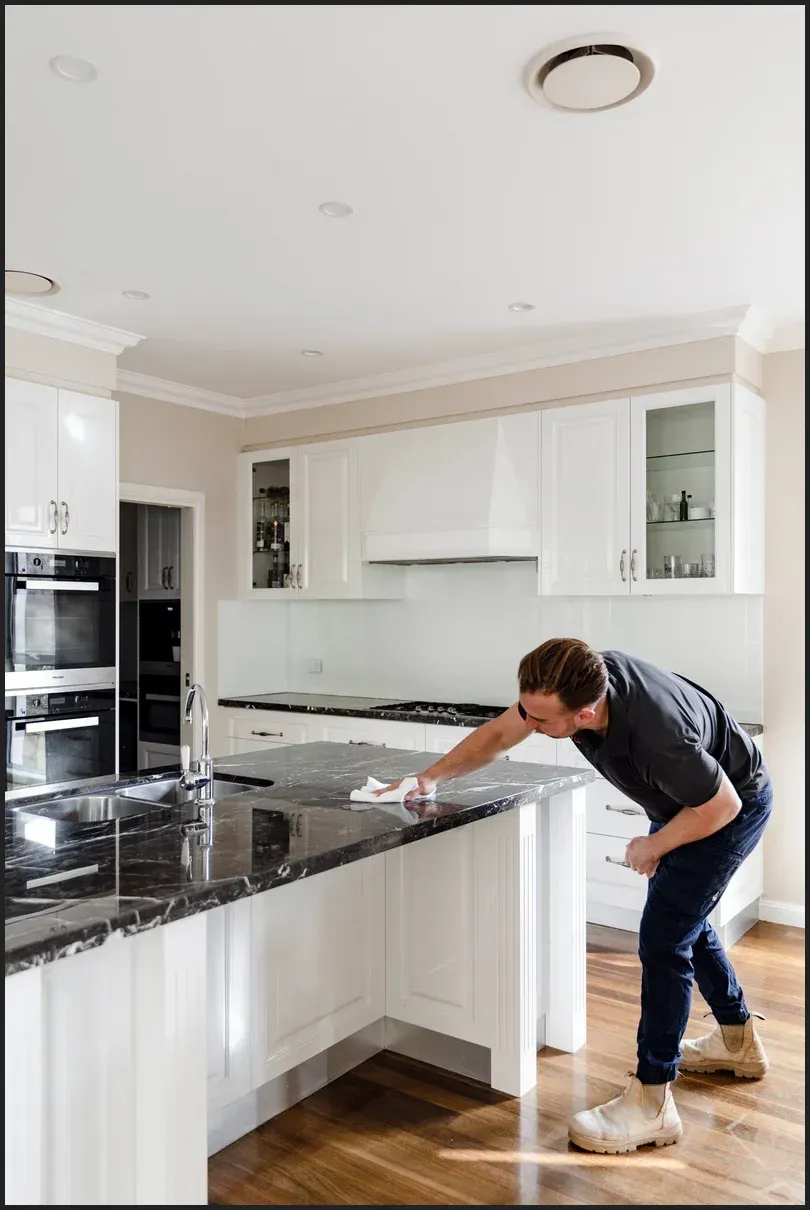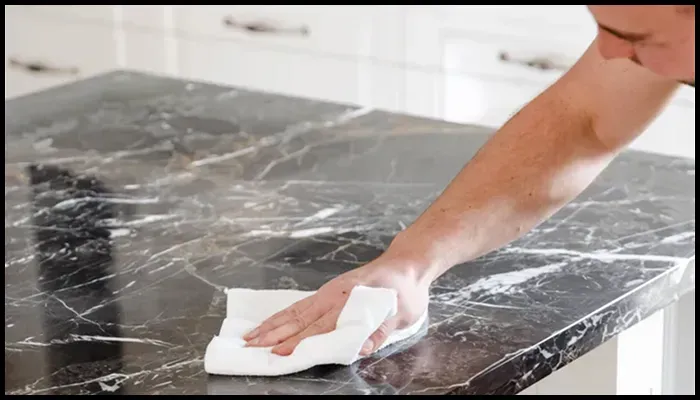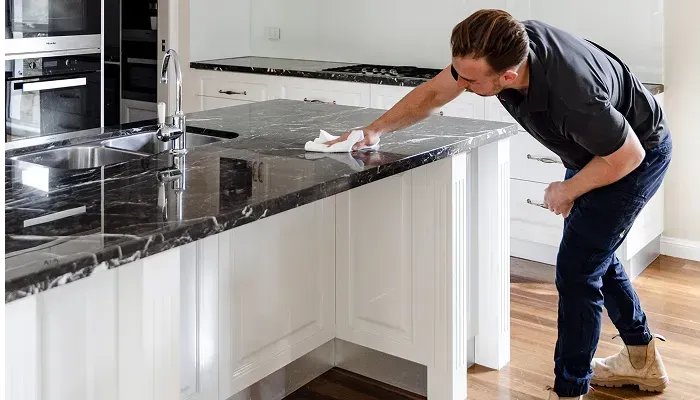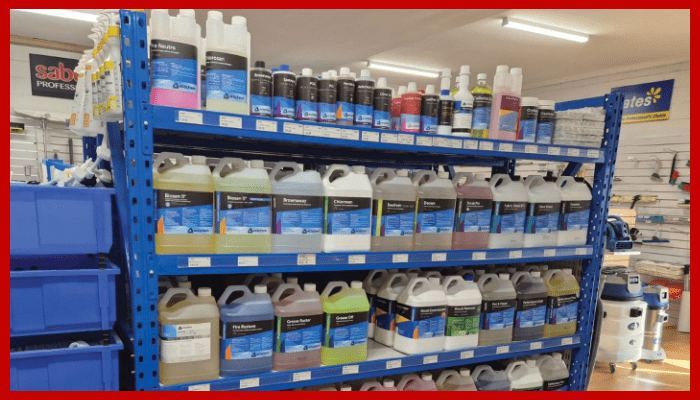Tile And Grout Cleaning Advice
How Often Should You Clean Your Tiles and Grout?
Table of Contents
- How Often Should You Clean Your Tiles and Grout?
- Best Ways to Clean Your Tiles and Grout at Home
- Choosing the Right Cleaning Products for Your Tiles
- Common Mistakes to Avoid When Cleaning Tile and Grout
- Signs You Need a Professional Tile Cleaner
- Conclusion: Keep Your Tiles and Grout Looking Their Best
- Frequently Asked Questions
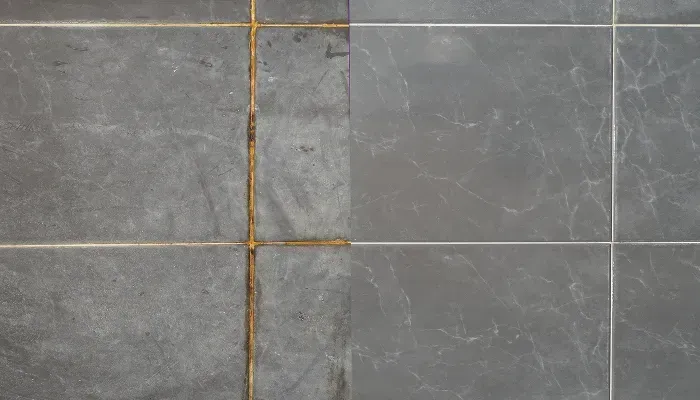
But as time goes by, dirt accumulates in the grout lines, the shine goes out of the floor tiles, and stubborn stains show up everywhere.
So, what's the secret to maintaining the good looks of tile and grout? Do you have to clean them, and if so, how often?
However, the various tile surfaces you have, their locations, and the type of grout you use all influence how often you should clean them—if you want to clean them in the way and with the frequency that will keep them looking good and living up to their potential.
How Often Should You Clean Your Tiles and Grout?
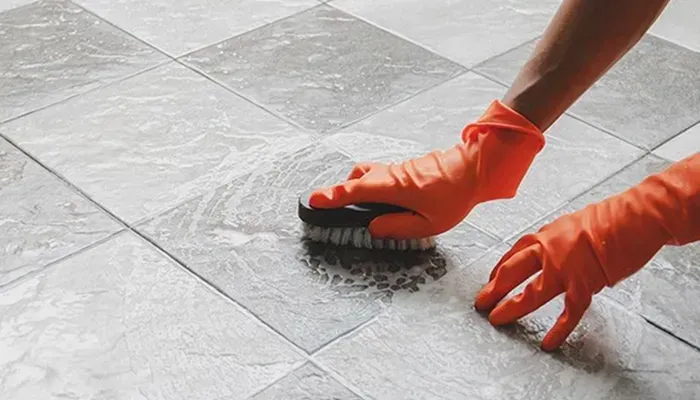
The cleaning process depends on several factors, such as how many people are in and out of a particular space, how dry or wet that space is, and what kind of flooring you have, not to mention age and condition.
1. Regular Cleaning for Daily Maintenance
For house cleaning, it is essential that you clean tile floors weekly to stop soap scum, dirt, and stains from setting in.
Your not-so-secret weapon for that weekly clean is a spray bottle filled with an amazing cleaning solution.
This helps with the not-so-deep cleans in between your deep clean and the amazing deep clean itself.
2. Deep Cleaning for Tough Stains and Grimy Grout
A complete cleaning is recommended every 3 to 6 months, especially in heavily trafficked areas like kitchen floors and bathroom tiles, as well as in surfaces made of porous materials.
When it comes to tools, the best bet for renewing a dull-looking surface is a brush. Use either an old toothbrush or a scrubbing brush to apply the cleaning product to the surface. Work it into the surface and scrub it in a circular motion.
This technique, which our source deems "one of the best methods for cleaning grout," can refresh any surface, especially if the cleaner has enough oomph to do the job.
3. Grout Sealing for Long-Term Protection
Every 6 to 12 months, applying a grout sealer can help safeguard against stained grout lines and protect them from moisture or other damaging elements.
This is especially useful in tiled areas, for instance, bathrooms and kitchens, where grout is every bit as vulnerable as any other porous building material.
Best Ways to Clean Your Tiles and Grout at Home
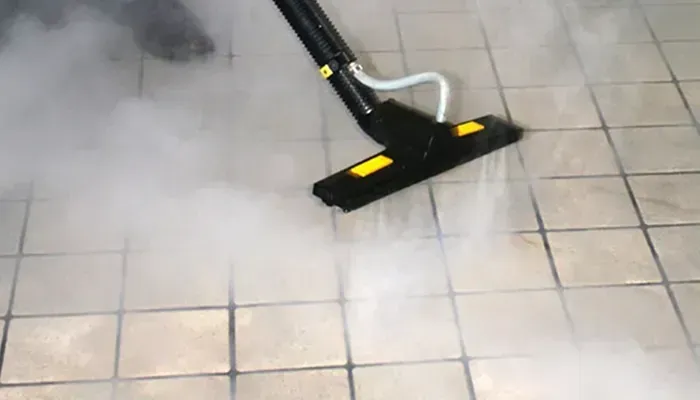
1. Easy Ways for Regular Tile and Grout Cleaning
For a fast cleaning job, you can mix a natural solution of equal parts white vinegar and warm water.
Spray it onto the surface of the tile. Allow it to sit for a few minutes, and then wipe it off with a microfibre cloth.
Otherwise, if you prefer a chemical-free cleaning system, baking soda paste is a highly effective cleaning option. When you make the paste, use a 3:1 ratio of baking soda to water.
Apply the paste to the dirty grout and let it sit for about 10 minutes.
Then, scrub the non-cleaned area with an old toothbrush, using that same side-to-side motion. Follow up with a rinse of clear, clean water.
2. Deep Cleaning for Stubborn Stains and Dirty Grout
Whenever you are facing really tough stains, you need to use heavier methods to remove them.
One of the great ways to eliminate the dirty buildup in our grout lines is to use hydrogen peroxide and dish soap.
Mix up a batch, apply it with a scrub brush, and let it work for a while.
Rinsing with water that has a higher-than-normal temperature seems to make the stuff work even better.
Should stains persist, another best option may be at hand: commercial grout cleaner.
These grout cleaning products are made for the effective cleaning of dirty grout and those stubborn stains that just don't seem to want to come out.
Using the right
cleaning products
ensures your grout lines stay fresh and free from buildup, making maintenance easier in the long run.
3. Steam Cleaning for a Professional-Level Clean
A steam cleaner or steam mop is a powerful tool for sanitizing tiles and grout. The high temperatures explode dirt without the need for strong or harsh cleaning products.
For a big, large area like a kitchen floor or a bathroom tile, steam cleaning especially works well on those surfaces and could be a great way to refresh the floor and the tiles.
Choosing the Right Cleaning Products for Your Tiles
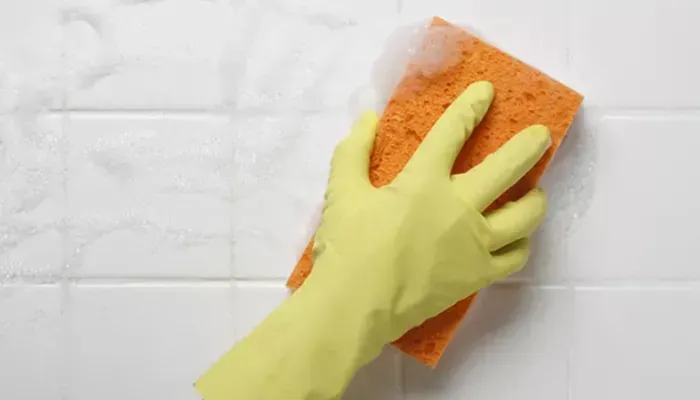
Different tile surfaces call for different cleaning solutions to avoid damage.
• Most common household products are okay with ceramic and porcelain tiles. They can pretty much handle anything—except excessive amounts of white vinegar. Over time, too much of that can weaken your grout liner, which is not something you want to have happen.
• Natural stone tiles are more fragile and shouldn't be cleaned with acidic solutions such as vinegar. Use a tile cleaner that has a neutral pH instead.
• Stains and cleaning issues are less frequent with epoxy grout, which is also more resistant to staining and cleaning, while unsanded grout and older types of grout may require the use of grout pens for restoration.
Before applying a cleaning solution to a large surface, please always test it in an inconspicuous area first.
Common Mistakes to Avoid When Cleaning Tile and Grout
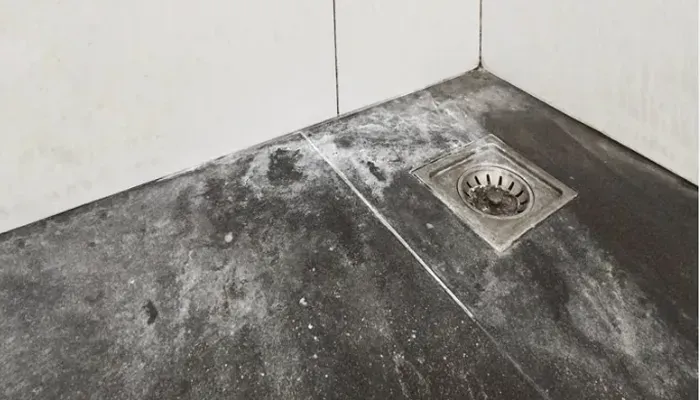
• Using dirty water: Always wash with clean water to avoid the distribution of dirt & filth.
• Scrubbing grout lines too hard: New grout can sustain damage if you are too vigorous.
• Not sealing the grout: The unsealed grout is much more susceptible to moisture and stains.
• Allowing soap scum to accumulate: Regular maintenance can prevent this from happening in the first place.
When to Call a Grout Cleaning Service for Expert Cleaning
At times, cleaning your tiles and grout with DIY methods is not enough. If you have stains that are set deep, mould that is hard to look at and maybe even hazardous, or if you need a level of cleanliness that a basic home system can’t provide, the best alternative is to hire a professional cleaning system like Grout Cleaning Service to do that work.
Signs You Need a Professional Tile Cleaner
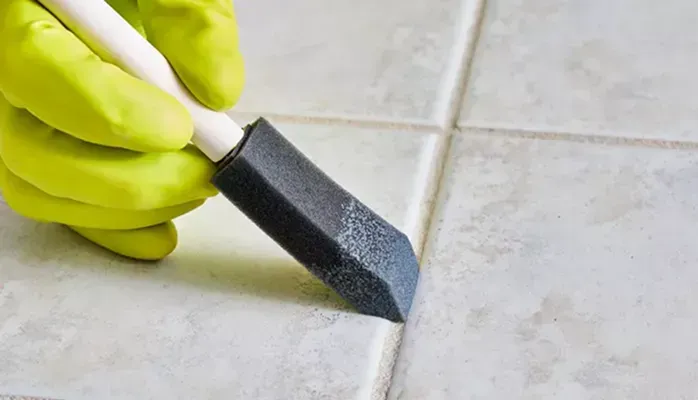
• Your grout lines retain their discolouration even after you clean them repeatedly.
• Your kitchen floor or bathroom tile has unsightly mould in it.
• Your tile surface looks dim and unshiny, even after cleaning.
• You wish to protect your tiled areas with expert cleaning and grout sealing.
A professional tile cleaner uses sophisticated cleaning tools, pressure cleaning, and commercial cleaner solutions to restore your tiles to their original shine.
And when they finish with a space, the original materials seem to shine and glow as though they were just installed.
Conclusion: Keep Your Tiles and Grout Looking Their Best
Maintaining a neat and clean appearance of tile floors and grout lines doesn’t have to be hard work. You can definitely achieve a clean tile grout appearance and stain removal as well as extend the life of your tiles and grout with these three simple ways:
regular cleaning, occasional deep cleaning, which we call "picking your spots", and the selection of the right cleaning products.
For professional help, On Point Property Services offers a Grout Cleaning Service in Canberra, ensuring that your tile surfaces stay in such good condition that you might think they're just new ones.
Get in touch with us today to receive a no-cost estimate, along with a professional cleaning of your tile and grout!
Frequently Asked Questions
How often should I clean my tile grout?
It is suggested that the tile grout in high-traffic spaces—like kitchens and bathrooms—should be cleaned at least once a month. This will prevent dirt and mould from accumulating and igniting in that potent mix of oxygen and moisture, just waiting for an opportunity to expand and wreak havoc.
Also, it's okay to clean grout less often—every few months or so— in places with little foot traffic and less opportunity for dirt and mould to get in.
What are effective methods for cleaning grout lines?
A paste made from baking soda and water can effectively clean grout lines. This is applied with a brush and then rinsed with clean water later.
To tackle more stubborn stains, a hydrogen peroxide and baking soda solution can be applied. As with any new cleaning solution, always spot-test a small, inconspicuous area first to ensure it doesn’t cause any harm to your tiles.
Can I use vinegar to clean my natural stone tiles?
No, vinegar is not safe and can harm natural stone tiles, such as travertine or marble. Instead, use a cleaning solution that is pH-neutral and specifically designed for natural stone surfaces.
How does sealing grout help, and how often should it be done?
Grout can be protected from stains, moisture, and mould by sealing it. And resealing every 6 to 12 months is advisable for the grout lines exposed to high moisture, to keep them looking good and in good shape.
Is steam cleaning safe for all types of grout?
Steam cleaning can effectively clean; however, it still has the potential to harm the grout if it’s not well-sealed or in good condition. Therefore, it's imperative to use this steaming method only if the grout can withstand it.
Another option is to check out a small area first. If you're nervous, you can always call and consult with the pros.
What causes grout to become discoloured?
Grout often becomes discoloured when dirt, soap scum, and mould accumulate in it. Staining can also be made worse over time by the porous nature of grout, the large amounts of dirt that can come with a lot of foot traffic, and bad cleaning methods
Are there commercial grout cleaners available, and are they effective?
Yes, commercial cleaners specifically for grout are available, and they do a fabulous job of tackling tough stains and restoring the grout back to a presentable state.
However, it is always important to read the product label first because if you use a cleaner that is not safe for your specific tile and grout type, you can cause serious damage not only to your grout but also to your tile, which can be a much more expensive proposition than using an effective cleaner that is safe.
Can I prevent grout from getting dirty?
Yes, you can consistently upkeep with the following actions: wiping down tiles after use, quickly cleaning up spills, and making sure to ventilate the area properly to reduce moisture can help keep your grout clean from becoming a grimy dust magnet.
But if you really want to make a good thing even better, you could use a grout sealer for a next-level defensive measure against both dirt and stains.
Why is professional tile and grout cleaning beneficial?
Professional cleaners have specialised equipment and expertise to deep clean and restore tiles and grout more effectively. Tough stains are no match for their concentration and attention to detail. And when it comes to making sure everything's sealed appropriately, well, let's just say they're pretty much the experts.
What should I avoid when cleaning grout?
You can follow three simple steps below:
- Do not use harsh chemicals or abrasive tools that can harm grout.
- Don't use too much water, either; grout is porous and can absorb moisture, which can lead to mould that you definitely don't want.
- Always use cleaning solutions and tools that are gentle enough for your tile type.
On Point Property Services
Address:
Phone:
0430 771 959
Email:
admin@onpointpropertyservices.com.au
Operating Hours
8:00am - 4:00pm (Monday to Friday)
Quick Links
Locations We Service
Canberra ACT
Queanbeyan NSW
Yass NSW
Murrumbateman NSW
Goulburn NSW
Bungendore NSW
Acknowledgement of Country
We acknowledge the Ngunnawal and Ngambri peoples as the Traditional Custodians of the land on which we operate. We pay our respects to Elders past, present, and emerging and recognise their enduring connection to land, waters, and culture. We are committed to supporting and celebrating Indigenous communities and honoring the rich heritage and traditions of First Nations peoples.
